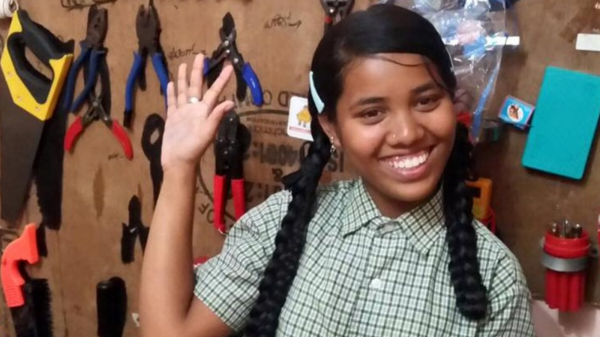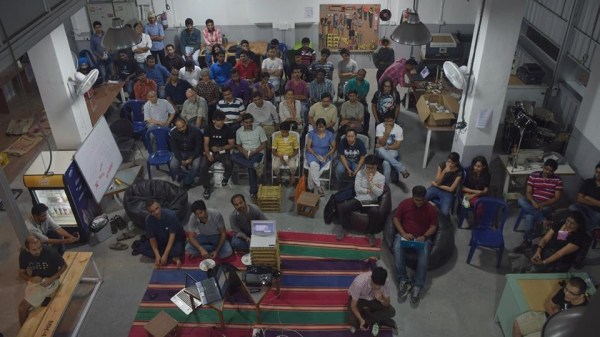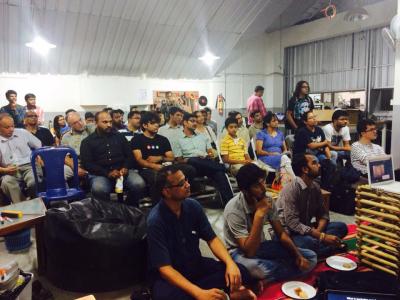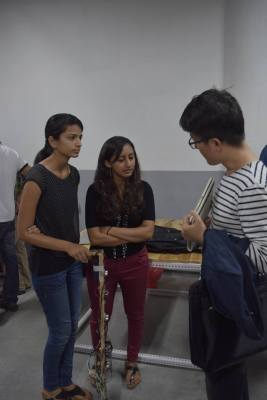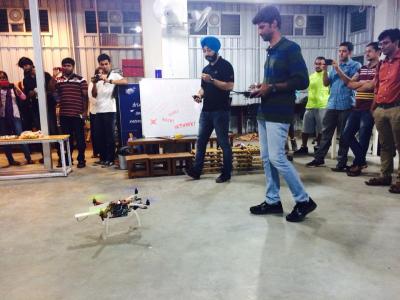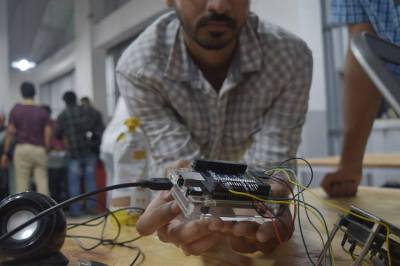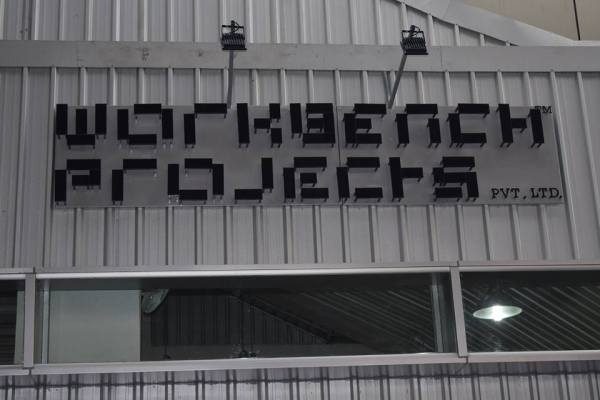This is an Education hack, and it’s pretty awesome. [Abhijit Sinha] received an Engineering degree and took up a run-of-the mill IT job in Bangalore, considered India’s IT hub. 7 months down the line on Dec 31st, he gave notice to the company and quit his “boring” job. He ended up in Banjarpalya, a village just 30 kms out of Bangalore. But it could well have been 30 years back in time. The people there had never come across computers, and there wasn’t much sign of other modern technology. So he set up Project DEFY – Design Education for You.
He bought a few refurbished laptops, took a room, and put kids and computers together. Except, these kids just knew a smattering of English. They went to the village school, run by the government and staffed by teachers whose training was basic, at best. He told the kids there are games in those boxes for them to play, but they’d have to figure it out on their own, without help from him. Pretty soon, all of them were playing games like they were pros. That’s when [Abhijit] stepped in and told them that they’d created a base line for having fun. Everything else they did from now on had to be more fun than what they had just done. If they were interested, he would show them how.
He had a gaggle of kids waiting to hear him with rapt attention. He showed them how to look online for information. He showed them how they could learn how to build fun projects by looking up websites like Instructables, and then use locally available materials and their own ingenuity to build and modify. Once a project was done, he showed them how to post details about what they had done and learnt so others around the world could learn from them. The kids took to all this like fish to water. They couldn’t wait to get through 5 hours of school each day, and then head over to their makerspace to spend hours tinkering. Check out their Instructable channel – and see if you can give them some guidance and advice.
A year onwards, on Dec 31st again, [Abhijit] gathered the kids, and several adults who had joined in during the year, telling them he had news. He had figured they were independent enough to run the space on their own now, without any help from him. He would still get them the 500 odd Dollars they needed each month to keep it operational. Other than that, they were on their own. He’s been monitoring their progress, and from the looks of it, the hack seems to have worked. More power to [Abhijit] and others like him around the world who are trying to bring the spirit of making to those who probably stand to benefit from it the most. Check out the videos below where they show off their work.
PS : Here’s the latest update from [Abhijit] : “Got back to the Banjarapalya Makerspace after quite a while, and this is what they show me – they built a little plane. Of course it crash lands, and needs a better programming, but I am super impressed that they are ready to fly.
Anyone who wants to help them technically? Financially? With parts and components ?”
Continue reading “Hacking Education – A Makerspace Experiment”

